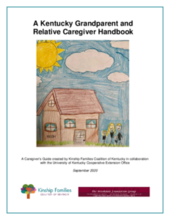Displaying 491 - 500 of 2221
This study investigated rates of guardianship and adoption dissolution using a complete entry cohort from a large state foster care system and the associations between child characteristics and risk factors with dissolution.
Participants at this event will have the chance to join with others in their region -- either virtually or in-person -- with local events across the country and global network events in countries worldwide.
This paper describes the upEND movement, a collaborative movement aimed at abolishing the child welfare system as we know it and reimagining how we as a society support child, family, and community safety and well-being.
The current study investigated factors associated with child maltreatment during the COVID-19 pandemic, including parental job loss, and whether cognitive reframing moderated associations between job loss and child maltreatment.
This study examined how custodial grandmothers navigated the process of their grandchildren being reunified with a biological parent.
The aim of this article is to contribute to ongoing discussions about the recently passed Canadian legislation, drawing on lessons learned in the United States context.
"Hundreds of migrant children have been held in hotels and guarded by government contractors in recent months as part of a secretive new system that advocates warn puts kids in danger," says this article from CNN.
This handbook is meant as a reference guide to enlighten grandparents and relative caregivers on resources and information that may be available to them and their family.
Save the Children is recruiting a Senior Specialist, Emergency Mobilization to act as the deputy on the Mobilization team and ensure there is holistic deployment support and fully trained staff available on every domestic response in the US.
Save the Children is recruiting a Child Care Recovery and Resilience Senior Specialist to serve as the technical lead and manage the delivery of Save the Children’s child care recovery and resilience programs in U.S. disaster contexts that help communities rebound and build back stronger after disasters.

